Vocabulary expansion Normal Reading Fiction Worksheets for Ages 3-9
8 filtered results
-
From - To
Boost your child's language development with our beautifully crafted Normal Reading Fiction Worksheets, designed for kids ages 3-9. Our engaging worksheets focus on vocabulary expansion, helping young readers enhance their understanding of new words through enjoyable, age-appropriate fictional stories. Each worksheet encourages active reading and word usage, fostering a love for literature while strengthening language skills. Perfect for both classroom settings and home practice, these resources are geared towards making learning fun and effective. Nurture your child’s reading journey with Kid’s Academy's expertly designed worksheets, ensuring a solid foundation in vocabulary from an early age.


Rhymes in Poems Worksheet
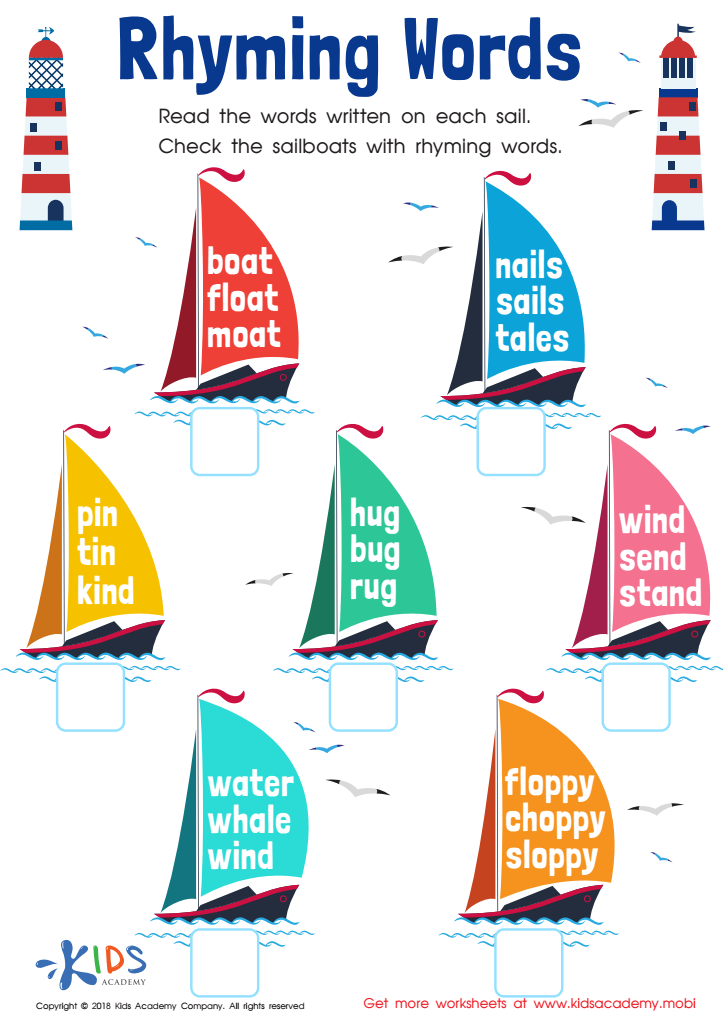

Rhyming Words Worksheet
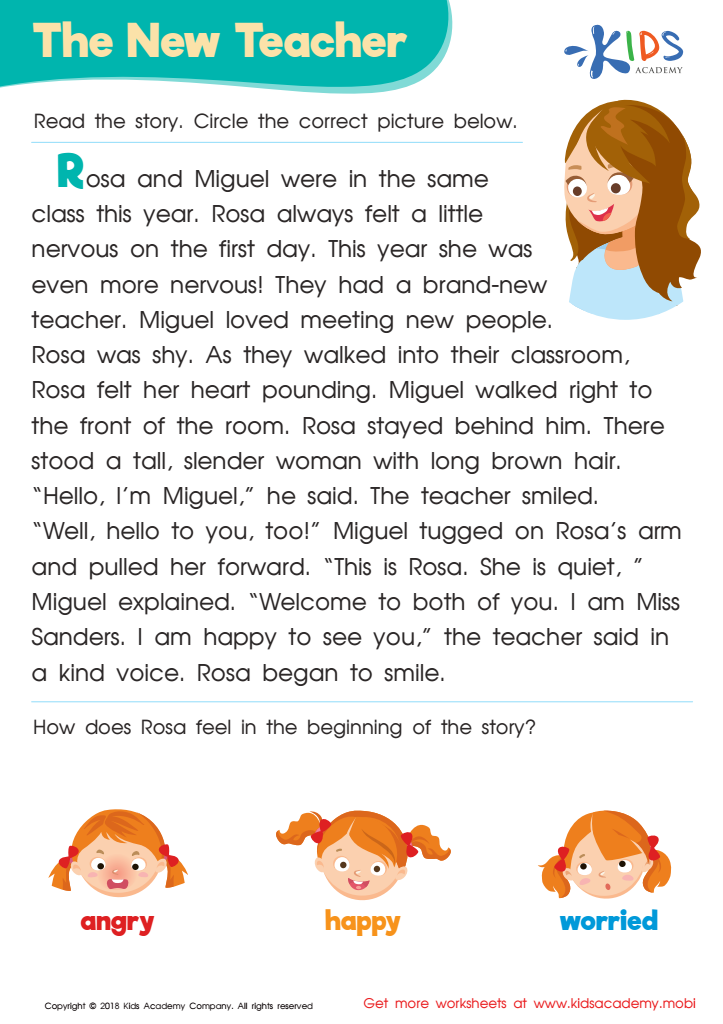

The New Teacher Worksheet
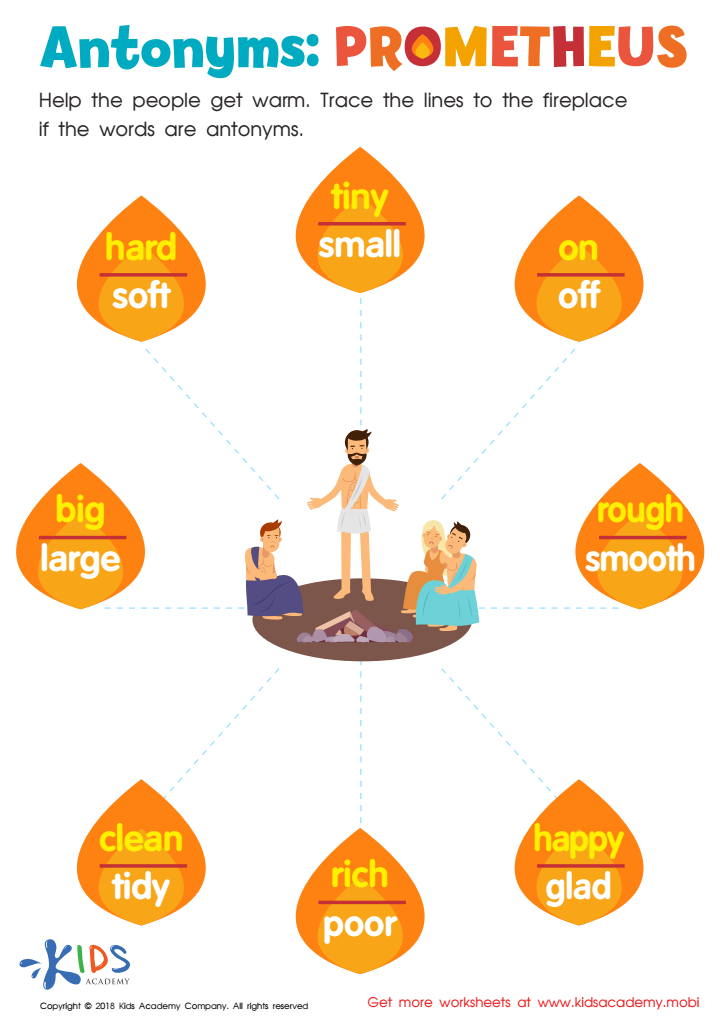

Antonyms: Prometheus Worksheet
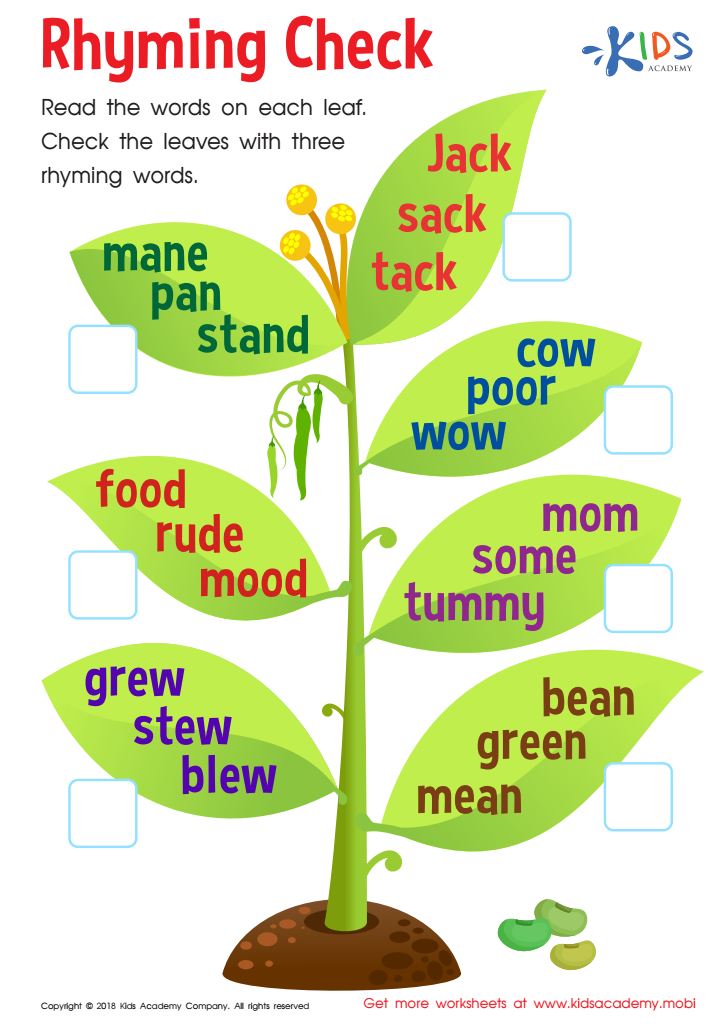

Rhyming Check Worksheet
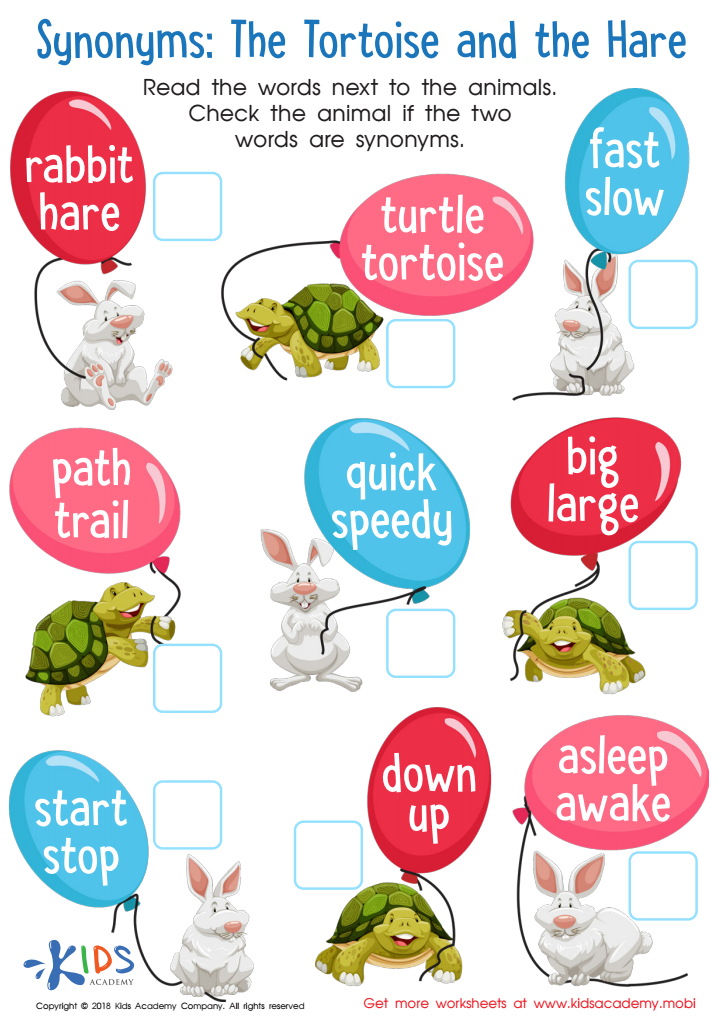

Synonyms: The Tortoise and Hare Worksheet
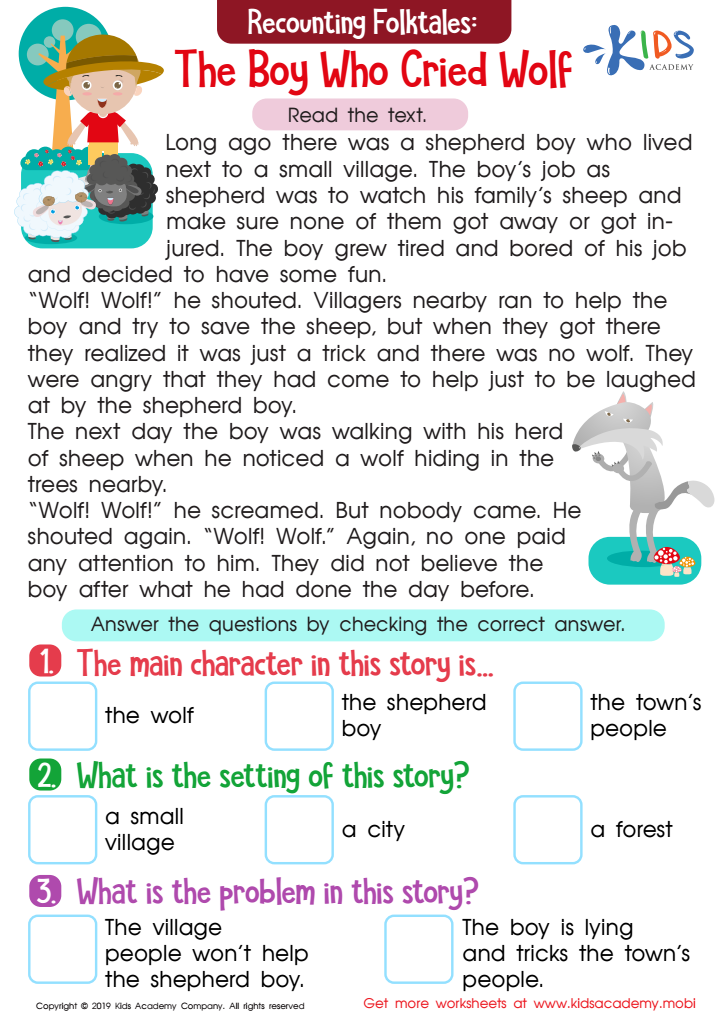

The Boy Who Cried Wolf Part 1 Worksheet
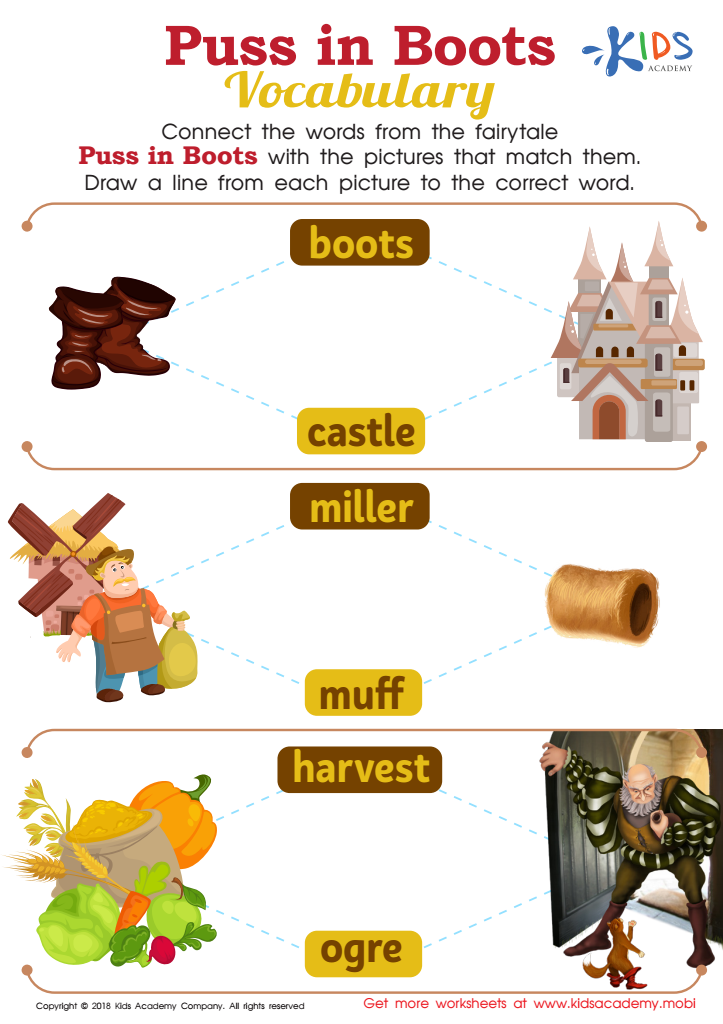

Puss in Boots Vocabulary Worksheet
Vocabulary expansion through normal reading, especially fiction, plays a critical role in early childhood development, particularly for ages 3-9. During these formative years, children's brains are highly receptive to language learning, and introducing them to a rich and varied vocabulary can significantly boost their cognitive and linguistic capabilities. Fiction, with its diverse range of topics, settings, and characters, exposes children to words and phrases they might not encounter in everyday conversation.
When parents and teachers invest time in reading fiction with children, they help build a strong foundation for future academic success. A robust vocabulary is directly linked to better reading comprehension, which is crucial for understanding academic content across all subjects as children progress through school. Furthermore, encountering new words in the context of a story aids in their retention and comprehension, making learning both natural and enjoyable.
Moreover, reading fiction fosters imagination and creativity. It allows children to experience different perspectives, cultures, and ideas, contributing to their social and emotional development. The shared experience of reading also strengthens bonds between adults and children, promoting a lifelong love of reading. Thus, prioritizing vocabulary expansion through fiction reading is essential for developing well-rounded, articulate, and empathetic individuals.

 Assign to My Students
Assign to My Students




















